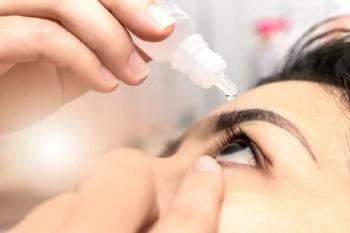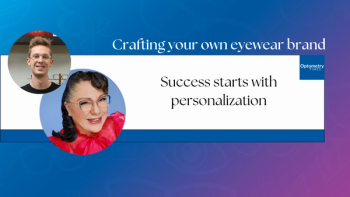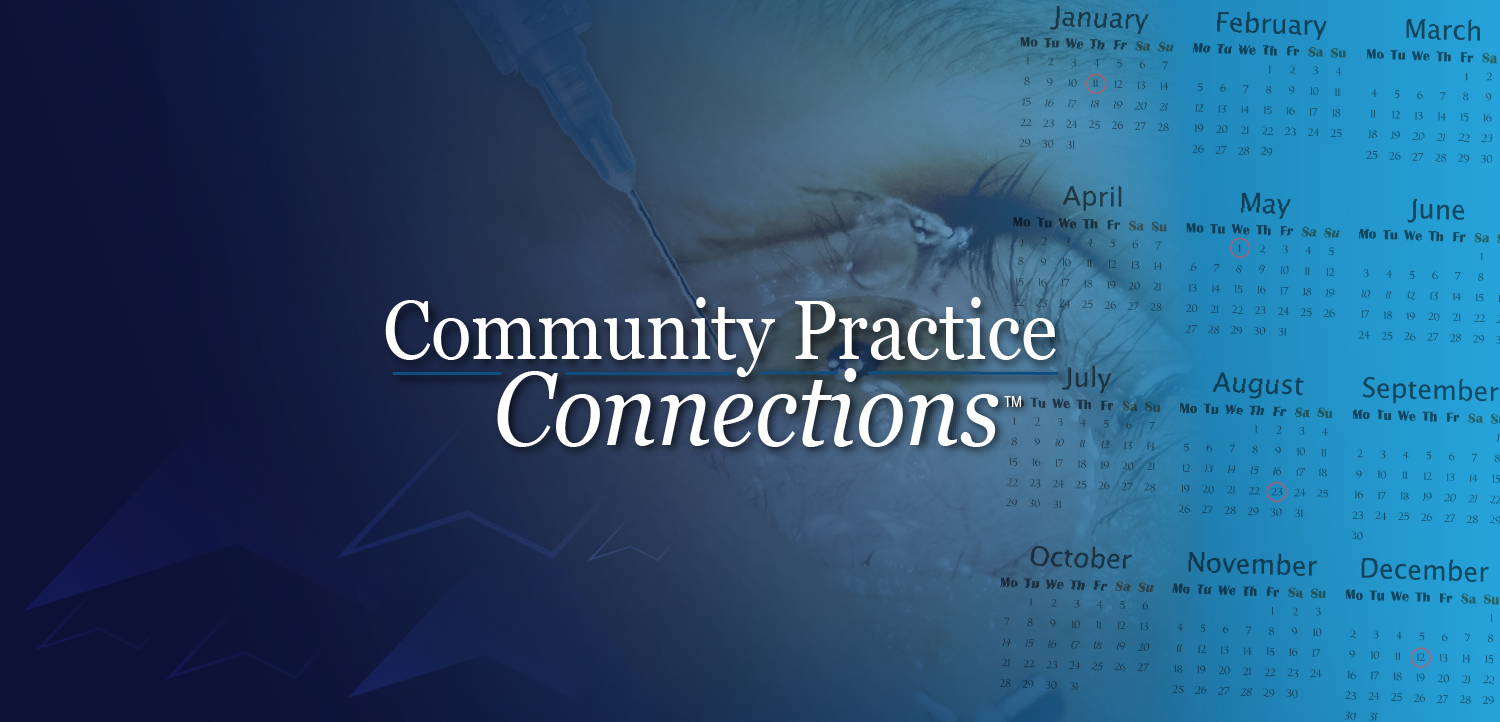
Q&A: Linda Chous, OD: Chief Eye Care Officer of United Healthcare Vision, Owner of The Glasses Menagerie in Minneapolis
Pediatric optometry, cosmetology, and giant tubs of popcorn
Where did you grow up?
I grew up in San Diego, although I was a Navy brat. I started school in Japan, but lived mostly in the United States. My father was an officer and he would always put in for San Diego. [Laughs]. Having been a Navy brat, I was used to moving into unknown territory-back in 1989, I had a four-month-old baby and we moved to Minnesota. There were so many reasons why it was a perfect fit, and I didn’t even know. My life’s like that sometimes; I’m sort of “Ready, fire, aim."
Why pediatric optometry?
I started my career as an ophthalmic technician at Kaiser Permanente in San Diego, and I was teamed with a pediatric ophthalmologist who became an incredible mentor to me and helped me decide that optometry is what I wanted to do. I also have a very strong interest in low vision and vision rehabilitation. I’ve had the opportunity to work with children who are partially sighted and perform low vision evaluations and training with them, and it’s been awesome.
Previous Q&A:
What three things do you recommend to ODs starting a pediatric-centered practice?Linda Chous, OD
Network. Network. And network. [Laughs] The most important thing is to get out there and make sure people know who you are and what you do. When you’re opening a practice, people think you have a lot of time on your hands, but usually you have to work five other places to keep the income flowing. The time you spend promoting yourself, your practice, and your abilities is just as important as the money you make working somewhere else. So, take the time to reach out and make sure your communications skill are good, too.
Related:
How did you start your practice?
I would go to my colleagues in retail settings to let them know what I was doing. A lot of them don’t have the equipment, the space, or scheduling time to work with vision therapy, so they’re open to referring patients. We would have lunch, they would get to know me, and I would get to know them on a personal level as well, which I think is important. If I refer a patient for something that is beyond my capabilities, the person I refer to is a reflection of me. I opened my practice in 1991, and the scope of optometry wasn’t what it is today. I wanted to have a place where parents would feel comfortable bringing their children when they got the note from the school nurse or the teacher where the child would feel comfortable and not threatened. Every time a patient would come in with an outside prescription, I would assume that doctor didn’t have the frame selection for kids. Back then, there wasn’t a lot for kids. I would then go to that doctor’s office with a bunch of my cards and said, “If in the future you have other patients who might require good pediatric opticians to help them, take my card.”
Why pursue an MBA now?
Why not? [Laughs] Eight years ago, my career path took a little jog. I was given the opportunity to work at United
Healthcare as basically a clinical director. I found myself in my spare time doing a lot of reading about leadership, business, and strategy. My youngest started college in the fall, and I thought this is a great opportunity to start something different and new. I got accepted into the University of Minnesota Carlson School of Management, and I am very proud of that. I felt it was a good developmental step for me in what was happening with my career.
If you had it to do all over again, what would you change?
I have an absolutely fabulous life. I live in a place that I love. I have three wonderful children. I have a career that is amazing; I have positions still in my private practice, I’m still able to see patients, I have a position with one of the largest healthcare companies, globally. And, wow, I’m relatively healthy. [Laughs] I don’t see how anything could have changed that would bring me to a place that any better than this.
How do you keep your practice life away from your corporate life?
One reason I continue to be in practice is because with United Healthcare I keep abreast of what’s happening with providers, the challenges they’re facing. I would find it difficult to do that if I was sitting on the eighth floor of a huge building and not in the trenches. The other reason is that I love it. Working at my practice helps me with my relationships and decision-making while I’m at United Healthcare, but it goes the other way, too. I have a better understanding of the system. Before I worked at United Healthcare, insurance industries were big behemoths and there were nuances I never knew about. I think it’s easier now for me to be a provider for an insurance company because I understand them. I think it would be fabulous if optometry students could have a rotation, even for a week or two, to see what it’s like behind the scenes.
Related:
How can optometrists improve monitoring of patients with chronic conditions?
I think they do a really good job right now in actual monitoring, but the challenge might occur in creating the opportunities to monitor. It’s all about communication and education of patients-people will come to see us more often than they will their primary-care doctors, so we have a huge opportunity to educate them. We need to have people realize that reading 20/20 on an eye chart does not mean you have healthy eyes. People need to know that an eye exam is not just something to get when you’re having trouble reading the paper. It’s something you need to have routinely to make sure everything stays healthy. Docs need to keep pounding that message to their patients so that not only do their patients know it, but everyone the patient touches knows it, too.
What’s something your colleagues don’t know about you?
I love keeping this a secret because always I love seeing people’s faces when I tell it. [Laughs] Long ago, my first career choice was hair stylist. I have my cosmetology license in California. I never got it anywhere else because by the time I left California I had an optometry license. [Laughs] I have kept the cosmetology license because I figure that if I ever need it, I’m going to really need it. [Laughs]
When did you take your first step into leadership?
In 2001, I started getting involved in the community with children’s eye health. Knowing that the Minnesota Optometric Association should be part of the discussions, I reached out to the executive director. InfantSEE was a gleam in every optometry leaders’ eye, and they needed somebody with a pediatric background on the board. So they invited me to become a trustee on the Minnesota Optometric Board. I had no intention to continue to become president. As the time got closer to making the decision to go further on the executive board for the MOA, I thought, I like doing this, so I’m going to stay. And I went on to become board president. I sometimes wish that I had started earlier. That’s another thing I might tell newly minted ODs: Get involved in their state associations early and stay there.
What’s your guilty pleasure food?
I am a person with type 1 diabetes. I probably have more guilty foods than anybody else in the world. [Laughs] There is one thing that when I start eating it, I cannot stop: popcorn. Look at the carb content in popcorn; it’s not a good thing for a person with diabetes to be addicted to. If I go to the movies, I always have to get the huge barrel, the one that you can get refills of while you’re there. [Laughs] I will have half of it eaten before the movie starts. I haven’t been going to a lot of movies because I can’t go to a movie without popcorn, and if I have popcorn I have to eat the whole thing.
What’s the one thing about optometry you would change?
I wish more ODs would get involved. When I was president of the MOA, there was a lot of discussion about board certification for optometrists. Twelve percent of people were totally for board certification, 12 percent of people were totally against board certification, and everybody else really didn’t know. I wish more people would take the initiative to find out about the things that affect them as a profession and do something. We need to hear from everybody. I wish that more ODs would step up and find out about things, research them, take a stand, and help grow this profession into something even more than it is now. There’s a lot of hard work that goes into it, and it’s upsetting to me that a lot of doctors just sit back and let that happen. Things would get done faster and better is we had everybody on board.
What’s the craziest thing you’ve ever done?
I’ve decided the craziest thing I’ve ever done I haven’t done yet. I’m looking forward to it.
Newsletter
Want more insights like this? Subscribe to Optometry Times and get clinical pearls and practice tips delivered straight to your inbox.
















































.png)


